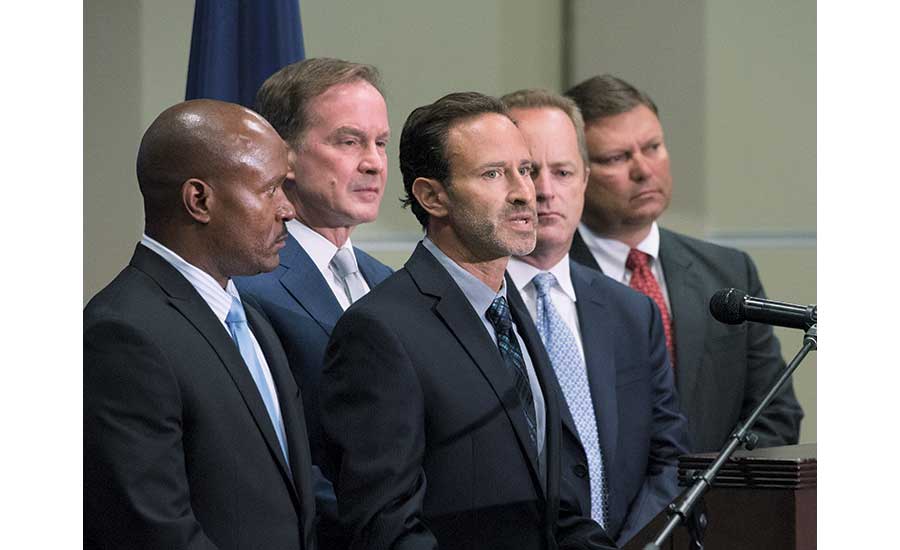Only a few months ago, Michigan’s state agencies stood at the center of a circle of blame for the Flint water crisis. A special advisory task force had condemned the state’s use of an emergency manager to make key decisions about the city, including, in 2014, the money-saving switch of the water source from Lake Huron to the Flint River and the state Dept. of Environmental Quality’s slow response to citizen reports of smelly, discolored water. On June 22, Michigan Attorney General Bill Schuette started working to expand the circle via a new lawsuit in a Genesee County state court, accusing engineers Veolia N.A. and Houston-based Lockwood, Andrews & Newnam (LAN) and its parent company, Leo A Daly Co., of professional negligence.
Flint hired LAN as a consultant in 2011 and brought aboard Veolia only after the water crisis had started in early 2015. The lawsuit accuses the companies of failing to meet a normal standard of care in detecting and identifying remedies to what turned out to be dangerous lead levels in the Michigan city’s drinking water. Schuette’s brief states that both companies should have known from publicly available signs and other sources about the danger of corrosion and lead in the city’s old pipes. Engineers of ordinary competence would have acted to cut short the public’s exposure to the lead, he claims. Instead, he states, LAN and Veolia both suggested adding ferric chloride to counter too-high trihalomethane levels, and Veolia suggested adding polyphosphate to cut iron corrosion, which could increase lead levels.
Neither the city nor state officials acted on the lead corrosion-control suggestions. A state official apparently believed Flint had optimized corrosion control, but it hadn’t been done. ENR’s review of city records could not immediately confirm when Flint increased chemicals used to treat the drinking water. A city official declined comment.
At the heart of the charges is the analogy, put forward by one of Schuette’s associates, that an engineer can’t leave out the supports it knows are needed from a bridge design just because the client didn’t ask for it. But balancing Flint’s water chemistry was a more complicated group decision. The lawsuit now entangles the engineers and liability insurers in what will likely be an expensive legal battle. The insurers’ identities aren’t yet known.
Final ethical judgments will have to wait. “The facts appear to be in dispute and need to be sorted out,” says Arthur Schwartz, deputy executive director and general counsel of the National Association of Professional Engineers.
LAN and Veolia called the charges in the lawsuit false. Both firms have argued that their work was limited in scope and responsibly performed. LAN, which had been a Flint consultant prior to the water-source switch, says it had advised Flint officials of corrosion-control measures and suggested a testing period for the city’s treatment plant. Flint declined both.
Veolia termed the lawsuit false, unwarranted and an “outrageous” attempt by state officials to deflect responsibility for their own failings.





